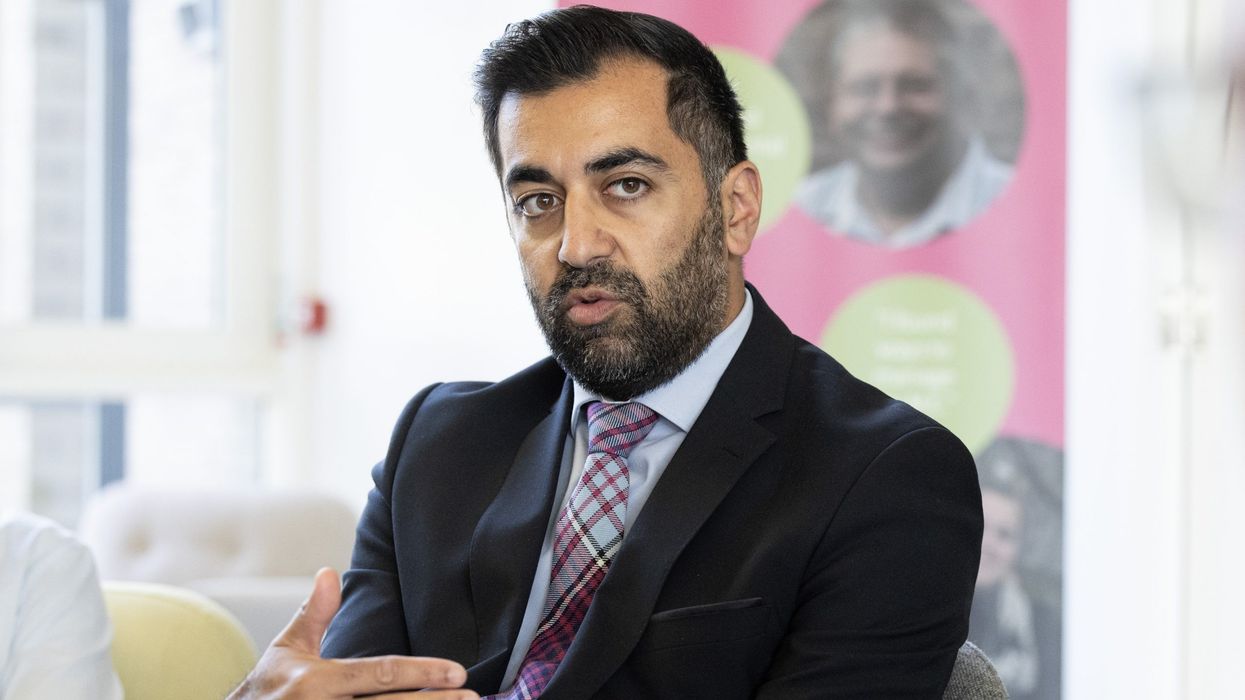HUMZA YOUSAF is poised to resign as Scotland's first minister before he faces two confidence votes this week, British media reported on Monday. He is due to address a news conference at noon (1100 GMT).
The BBC, The Times and other outlets said the Scottish National Party (SNP) leader was on the verge of quitting as head of the devolved administration after just over a year in office.
The 39-year-old politician has endured a torrid few days since ending the SNP's ruling coalition with the Scottish Greens in the Scottish parliament in Edinburgh.
His government had earlier abandoned ambitious targets for the transition to net-zero carbon emissions, angering the Greens.
The opposition Scottish Conservatives then lodged a vote of no-confidence in Yousaf, which is due to be held as early as Wednesday.
Scottish Labour have lodged another no-confidence vote in his government.
Yousaf is by no means certain of winning, with the Tories, Labour and Liberal Democrats all saying they will vote against him.
The Greens have also repeatedly ruled out supporting him in a personal vote, forcing him to seek the backing of the sole Alba party lawmaker.
Alba's Ash Regan is a former SNP colleague of Yousaf who ran against him in the March 2023 leadership election to succeed Nicola Sturgeon as first minister.
Divisions
Yousaf's pro-independence SNP has 63 members in the 129-seat parliament - two short of a majority. The presiding officer has a casting vote.
Yousaf initially said he had no intention of quitting and intended to win the confidence votes.
On Monday, Scottish media quoted sources close to the first minister said he would now resign.
Should he quit, parliament would have 28 days to choose a new first minister.
Yousaf became Scotland's leader after Sturgeon sensationally announced she was stepping down as SNPy leader and first minister, citing tiredness after eight years in charge.
Yousaf - the first Muslim leader of a major UK political party - defeated Kate Forbes and Regan in a bruising contest that highlighted divisions in the party between those on the left wing and others closer to the right.
His leadership was quickly plunged into turmoil when Sturgeon was arrested with her husband, Peter Murrell, over claims of mismanagement of SNP finances.
Murrell was charged in the case earlier this month. Sturgeon has not been charged.
Controversies
Sturgeon had been the figurehead of the Scottish independence movement.
She oversaw a surge in support for the SNP, particularly after Brexit - in which Scotland opposed leaving the European Union - and during the Covid pandemic.
But the SNP, which has run the Scottish government since 2007, has suffered a drop in popularity under Yousaf.
He also came under pressure over controversial new laws which made it an offence to stir up hatred against a number of groups, including transgender people.
The law has been heavily criticised, including most prominently by "Harry Potter" author J.K. Rowling, who lives in Edinburgh.
The SNP's slump has also come in the context of a resurgent Labour party, which is tipped to win a UK general election due later this year.
Scotland's independence movement is arguably at its lowest ebb in recent memory.
The country voted against independence in 2014.
It has argued that the UK's vote to leave the EU in 2016 had put the issue back on the table but it has struggled to build momentum for another vote.
The Scottish Parliament, re-established in 1999, has limited powers to set policy in areas such as health, education, transport and the environment.
The UK government in London retains powers for countrywide issues such as defence and foreign policy. (AFP)




